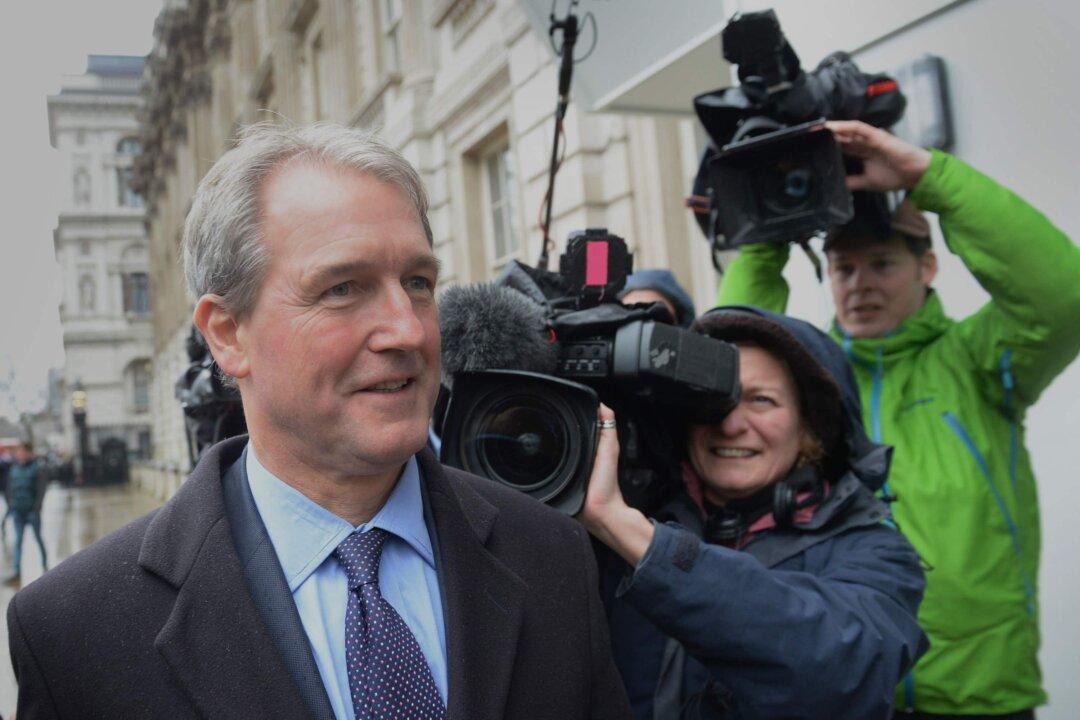A former British Cabinet minister is facing a 30-day suspension from Parliament after a watchdog found he had breached rules on lobbying.
Conservative MP Owen Paterson said that the investigation into him was biased, accusing the parliamentary commissioner of making up her mind before speaking to him.





